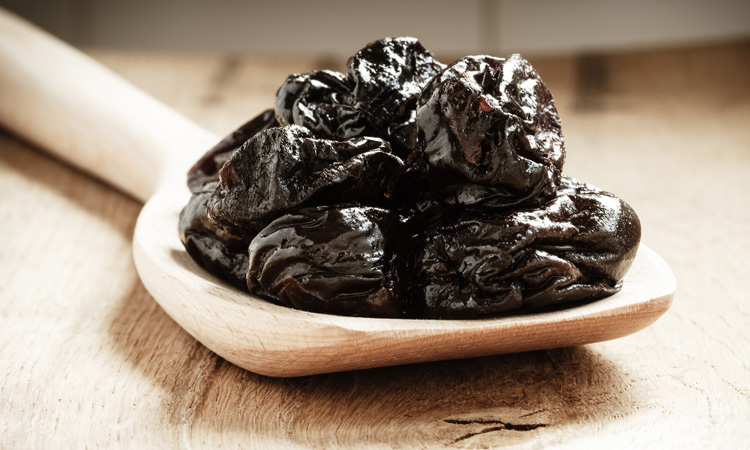The surprising fruit that helps bone mineral density
- Like
- Digg
- Del
- Tumblr
- VKontakte
- Buffer
- Love This
- Odnoklassniki
- Meneame
- Blogger
- Amazon
- Yahoo Mail
- Gmail
- AOL
- Newsvine
- HackerNews
- Evernote
- MySpace
- Mail.ru
- Viadeo
- Line
- Comments
- Yummly
- SMS
- Viber
- Telegram
- Subscribe
- Skype
- Facebook Messenger
- Kakao
- LiveJournal
- Yammer
- Edgar
- Fintel
- Mix
- Instapaper
- Copy Link
Posted: 1 April 2022 | New Food | No comments yet
Prunes prevent bone loss at hip and protect against fracture risk, claims a new research study from Pennsylvania State University.


Worried about your bone density? Well the answer might be to eat more of one particular fruit.
In a new study, researchers from Pennsylvania State University in the US found that daily prune consumption preserved bone mineral density (BMD) at the hip and protected against increased fracture risk in older women.
The study, which was presented at the World Congress on Osteoporosis, Osteoarthritis and Musculoskeletal Diseases – a clinical conference on bone, joint, and muscle health – is said to be the first to demonstrate a favourable effect of prune consumption on BMD at the hip, and points to prunes as a food-based therapeutic option for protecting bone health.
“It is exciting that the data from our large randomised controlled trial in postmenopausal women showed that consuming five to six prunes a day demonstrated the benefit of protecting from bone loss at the hip,” said principal investigator Mary Jane De Souza.
The results of this study showed that women who consumed 50 grams of prunes (five to six prunes) a day for one year maintained hip BMD while those who ate no prunes lost significant bone mass at the hip. Furthermore, hip fracture risk went up in the control group (the group which did not consume any prunes) compared to the prune eaters who were protected from any increases in fracture risk, according to the authors of the study.
“Just a handful of prunes can easily be added to anyone’s lifestyle,” said California Prune Board’s Nutrition Advisor, Andrea N. Giancoli. “Prunes pair with so many flavours and textures and work well for individualised nutrition plans. Mix them into salads, trail mixes, smoothies, savoury dishes – you name it. The naturally sweet flavour of prunes makes them a versatile ingredient or convenient snack for anyone.”
The study adds that prunes are a nutrient-dense fruit that contains vitamins and nutrients known to influence bone status, namely boron, potassium, copper, and vitamin K, and are also rich in phenolic compounds which act as antioxidants.
Related topics
Related organisations
California Prune Board, Pennsylvania State (Penn State) University









